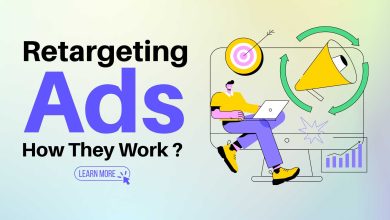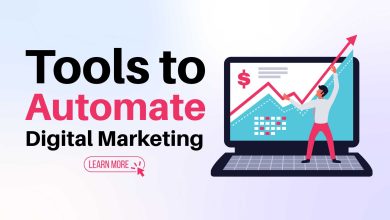Power Of Digital Marketing – Comprehensive Guide the Future of Business 2023 – 24
Power of Digital Marketing
In the ever-evolving landscape of the 21st century, the power of digital marketing has emerged as a catalyst for unprecedented change in the business world. This essay seeks to explore and elucidate the multifaceted power of digital marketing, delving into its transformative influence on businesses of all scales. From its roots in the dot-com era to the present-day dominance, digital marketing has not only reshaped the way products and services are promoted but has also become an integral force driving innovation, customer engagement, and economic growth.
Section 1: The Evolution of Digital Marketing
1.1 From Traditional to Digital:
- Traditional Marketing Landscape: A brief overview of traditional marketing methods and their limitations in reaching a global audience.
- Digital Revolution: The advent of the internet and how it revolutionized marketing strategies, laying the foundation for the digital era.
1.2 Key Milestones:
- Dot-Com Boom: The emergence of online businesses and the dot-com boom as a precursor to the digital marketing era.
- Social Media Revolution: The transformative impact of platforms like Facebook, Twitter, and Instagram on how businesses connect with consumers.
- Mobile Dominance: The rise of smartphones and the shift towards mobile-centric marketing strategies.
1.3 Current Landscape:
- Data-Driven Marketing: The importance of data analytics in crafting targeted and personalized marketing campaigns.
- E-commerce Integration: The symbiotic relationship between digital marketing and the growth of e-commerce platforms.
- Emerging Technologies: A glimpse into the role of AI, AR, and VR in shaping the future of digital marketing.
Section 2: The Dynamics of Digital Marketing Channels
2.1 Social Media Marketing:
- Engagement and Brand Building: How social media platforms provide a direct avenue for brands to engage with their audience and build a robust online presence.
- Influencer Marketing: The rise of influencer partnerships as a powerful tool for product promotion and brand advocacy.
2.2 Search Engine Optimization (SEO):
- Visibility and Ranking: The significance of SEO in enhancing a website’s visibility and ranking on search engine results pages.
- Content Marketing: The intertwining relationship between SEO and content marketing in driving organic traffic.
2.3 Email Marketing:
- Personalization and Automation: The role of personalized email campaigns and automated workflows in nurturing leads and maintaining customer relationships.
- ROI and Conversion Rates: The effectiveness of email marketing in generating measurable returns on investment.
2.4 Paid Advertising:
- PPC Campaigns: The mechanics of pay-per-click advertising and its role in driving targeted traffic.
- Display and Video Advertising: Leveraging visual content for effective brand promotion and product showcasing.
Section 3: Power of Digital Marketing and Business Growth
3.1 Global Reach:
- Breaking Geographical Barriers: How digital marketing enables businesses to reach a global audience without the constraints of physical boundaries.
- Cultural Sensitivity: Navigating cultural nuances in digital marketing campaigns to resonate with diverse audiences.
3.2 Targeted Advertising:
- Precision Targeting: The ability to precisely target specific demographics, interests, and behaviors for maximum campaign effectiveness.
- Personalization: Crafting personalized messages and offers based on user data to enhance customer experiences.
3.3 Customer Engagement:
- Interactive Content: The role of interactive content in fostering meaningful engagement and brand loyalty.
- Social Listening: Utilizing social media as a tool for actively listening to customer feedback and adjusting strategies accordingly.
3.4 Data-Driven Decision Making:
- Analytics and Insights: The importance of data analytics in making informed marketing decisions and optimizing campaigns in real-time.
- A/B Testing: Experimenting with different elements to refine strategies and improve overall campaign performance.
Section 4: Challenges and Ethical Considerations in Digital Marketing
4.1 Privacy Concerns:
- Data Privacy Issues: The increasing importance of safeguarding user data in the wake of privacy scandals and regulations like GDPR.
- Ethical Use of Customer Data: Balancing the use of data for personalized marketing with the ethical treatment of customer information.
4.2 Information Overload:
- Digital Noise: Addressing the challenge of standing out in a crowded digital landscape and capturing audience attention amidst information overload.
- Content Quality: Emphasizing the importance of creating high-quality, valuable content to cut through the noise.
4.3 Ad Fraud and Misinformation:
- Combatting Fraud: Strategies for businesses to identify and combat ad fraud, ensuring the integrity of digital marketing efforts.
- Promoting Accuracy: The responsibility of digital marketers to disseminate accurate information and combat misinformation.
Section 5: Future Trends and Innovations
5.1 Artificial Intelligence (AI):
- Chatbots and Virtual Assistants: The integration of AI-driven chatbots and virtual assistants for enhanced customer interactions.
- Predictive Analytics: Harnessing the power of AI for predictive analytics to anticipate customer behavior and tailor marketing strategies accordingly.
5.2 Augmented Reality (AR) and Virtual Reality (VR):
- Immersive Experiences: Exploring the potential of AR and VR in creating immersive marketing experiences.
- Virtual Shopping: The rise of virtual shopping experiences and its implications for the e-commerce landscape.
5.3 Voice Search Optimization:
- Rise of Voice Assistants: The impact of voice-activated devices on search behavior and the need for voice search optimization in digital marketing strategies.
- Conversational Content: Crafting content that aligns with conversational search queries for improved visibility.
10 Reasons Why Digital Marketing Holds Paramount Importance
In the contemporary business landscape, digital marketing has become an indispensable tool for companies aiming to thrive and stay competitive. Here are ten compelling reasons why digital marketing is more important than ever:
- Global Reach:
- Unparalleled Reach: Digital marketing enables businesses to reach a global audience. With the internet connecting people worldwide, companies can expand their reach beyond geographical boundaries, tapping into diverse markets effortlessly.
- Cost-Effective:
- Budget-Friendly Options: Digital marketing offers cost-effective solutions compared to traditional advertising. Social media, email campaigns, and search engine optimization (SEO) provide avenues for businesses with varying budget sizes to promote their products or services.
- Measurable Results:
- Analytics and Insights: One of the key advantages of digital marketing is the ability to track and measure results in real-time. Analytics tools provide comprehensive insights into the performance of campaigns, allowing businesses to refine strategies for optimal results.
- Targeted Advertising:
- Precision Targeting: Digital marketing allows businesses to target specific demographics, interests, and behaviors. This precision targeting ensures that marketing efforts are directed toward the most relevant audience, increasing the likelihood of conversion.
- Personalization:
- Tailored Customer Experiences: Digital marketing enables businesses to create personalized experiences for their audience. Through targeted content, recommendations, and personalized communication, companies can enhance customer engagement and build lasting relationships.
- Interactivity and Engagement:
- Two-Way Communication: Social media platforms and interactive content foster engagement and two-way communication. Businesses can connect directly with their audience, receive feedback, and build a community around their brand.
- Search Engine Visibility:
- Enhanced Visibility: SEO strategies improve a website’s visibility on search engines. With the majority of consumers using search engines to find products or services, a strong digital presence enhances the likelihood of being discovered by potential customers.
- Adaptability and Flexibility:
- Real-Time Adjustments: Digital marketing campaigns can be adjusted in real-time based on performance data. This flexibility allows businesses to adapt to changing market conditions, ensuring that strategies remain effective and relevant.
- Mobile Dominance:
- Mobile-Centric Approach: With the widespread use of smartphones, digital marketing caters to a mobile-centric audience. Mobile optimization, apps, and mobile-friendly content ensure that businesses connect with consumers on the devices they use most frequently.
- Competitive Edge:
- Staying Ahead of the Curve: In a digital era, businesses that embrace digital marketing gain a competitive edge. Staying abreast of industry trends, utilizing new technologies, and leveraging innovative marketing strategies contribute to long-term success in a dynamic marketplace.
3W in Digital Marketing
Who, What, Why, & How of Digital Marketing :
Digital marketing is the use of digital technologies and platforms to promote and sell products and services. It has become an essential component of modern business, and its importance is only growing. In this essay, we will explore the who, what, why, and how of digital marketing.
Digital Marketing E-Book ⤵️

Who does Digital Marketing?
Digital marketing is done by a range of professionals, from individuals to teams. The size and structure of a company typically determine who is responsible for digital marketing. Small businesses may have an individual responsible for all marketing efforts, including digital marketing. Larger businesses may have a team of specialists dedicated to various aspects of digital marketing, such as search engine optimization (SEO), social media marketing, and content creation.
Digital marketing professionals require a range of skills to be successful. These include technical skills such as SEO, analytics, and web development, as well as creative skills such as content creation and design. They must also have strong communication skills to effectively communicate with clients or stakeholders and work collaboratively with other professionals.
What is Digital Marketing?
Digital marketing is the use of digital channels and technologies to promote and sell products and services. It encompasses a wide range of tactics, including search engine optimization, social media marketing, content marketing, email marketing, and mobile marketing.
Search engine optimization (SEO) involves optimizing a website to rank higher in search engine results pages (SERPs). This can involve on-page optimization, such as improving website structure and content, and off-page optimization, such as building high-quality backlinks to the website.
Social media marketing involves using social media platforms such as Facebook, Twitter, Instagram, and LinkedIn to promote products and services. This can involve paid advertising, such as sponsored posts or social media ads, as well as organic marketing efforts such as creating engaging content and building a community of followers.
Content marketing involves creating and sharing valuable content such as blog posts, videos, and infographics to attract and engage a target audience. This can help to establish a business as a thought leader in its industry and build trust with potential customers.
Email marketing involves using email to promote products and services to a subscriber list. This can involve sending newsletters, promotional offers, and personalized recommendations to subscribers to encourage them to make a purchase.
Mobile marketing involves using mobile devices such as smartphones and tablets to promote products and services. This can include tactics such as mobile-optimized websites and apps, SMS marketing, and in-app advertising.
Why is Digital Marketing Important?
Digital marketing is important for several reasons. First, it allows businesses to reach a wider audience than traditional marketing methods such as print or television advertising. With digital marketing, businesses can target specific audiences based on demographic information, interests, and behaviors, increasing the likelihood of reaching the right people with the right message.
Second, digital marketing is often more cost-effective than traditional marketing methods. With social media advertising, for example, businesses can set a budget and only pay for clicks or impressions, ensuring that they get the most bang for their buck.
Third, digital marketing provides businesses with valuable data and insights into their customers’ behaviors and preferences. By analyzing data from website traffic, social media engagement, and email campaigns, businesses can make data-driven decisions and improve their marketing efforts over time.
Finally, digital marketing allows businesses to engage with their customers in real-time, creating a more personalized and interactive experience. Social media platforms, in particular, provide businesses with a direct line of communication with their customers, enabling them to respond to questions and concerns quickly and efficiently.
How does Digital Marketing work?
Digital marketing involves several techniques that work together to create an effective marketing strategy. Here are some of the most common techniques used in digital marketing:
- Search engine optimization (SEO): SEO involves optimizing a website to improve its ranking in search engine results pages (SERPs). This involves various techniques such as keyword research, on-page optimization, and link building.
- Pay-per-click advertising (PPC): PPC involves placing ads on search engines and other websites. Advertisers only pay when someone clicks on their ad, making it a cost-effective way to reach a targeted audience.
- Social media marketing: Social media marketing involves creating and sharing content on social media platforms such as Facebook, Twitter, and Instagram. This helps businesses build their brand and engage with their audience.
- Email marketing: Email marketing involves sending promotional emails to a targeted list of subscribers. This can include newsletters, special offers, and more.
- Content marketing: Content marketing involves creating valuable and engaging content that attracts and retains a targeted audience. This can include blog posts, videos, infographics, and more.
10 ways to harness the power of digital marketing
- Strategic Social Media Presence:
- Leverage the power of social media platforms to connect with your audience. Develop a strategic presence on platforms like Facebook, Instagram, Twitter, and LinkedIn, tailoring content to each platform’s audience.
- Search Engine Optimization (SEO):
- Invest in SEO strategies to enhance your online visibility. Optimize website content, utilize relevant keywords, and ensure your website ranks high in search engine results, driving organic traffic.
- Content Marketing Excellence:
- Create high-quality and valuable content that resonates with your target audience. From blog posts and infographics to videos and podcasts, diverse content formats can engage users and establish your brand as an authority in your industry.
- Email Marketing Campaigns:
- Develop personalized and targeted email marketing campaigns. Nurture leads, keep your audience informed about promotions, and build strong relationships through effective email communication.
- Pay-Per-Click (PPC) Advertising:
- Harness the immediate impact of PPC advertising to drive targeted traffic to your website. Platforms like Google Ads and social media ads provide opportunities for precise audience targeting and measurable results.
- Mobile Optimization:
- Prioritize mobile optimization to cater to the growing number of users accessing content on smartphones. Ensure your website, emails, and marketing campaigns are seamlessly responsive to different devices.
- Data Analytics and Insights:
- Embrace data-driven decision-making. Utilize analytics tools to gain insights into user behavior, campaign performance, and overall digital marketing effectiveness. Adjust strategies based on real-time data to maximize results.
- Interactive User Experiences:
- Incorporate interactive content into your digital marketing strategies. Polls, quizzes, live videos, and augmented reality experiences can enhance engagement and keep your audience actively involved with your brand.
- Influencer Collaborations:
- Partner with influencers relevant to your industry or niche. Influencer marketing can amplify your reach, increase credibility, and create authentic connections with your target audience through trusted voices.
- Marketing Automation:
- Implement marketing automation tools to streamline repetitive tasks, personalize customer experiences, and nurture leads through the sales funnel. Automation enhances efficiency, allowing you to focus on strategic aspects of your digital marketing efforts.
Why Power Of Digital Marketing
Digital marketing empowers businesses by providing a dynamic and globally accessible platform to reach, engage, and convert their target audience, driving unprecedented growth and visibility.
How has the power of digital marketing transformed traditional business models ?
The power of digital marketing has revolutionized traditional business models by providing a dynamic online presence, enabling global reach, targeted audience engagement, and data-driven strategies that redefine customer interactions and market dynamics.
Specific examples of how the power of digital marketing
Digital marketing has propelled businesses to success through specific examples such as the viral social media campaigns of companies like Wendy’s, the personalized recommendations of e-commerce giant Amazon, and the interactive content strategies of brands like Nike, showcasing the tangible impact on brand visibility, customer engagement, and market influence.
Conclusion
In conclusion, the power of digital marketing has redefined the very fabric of modern business. From its roots in the dot-com era to the current landscape dominated by social media, SEO, and data-driven strategies, digital marketing has become the cornerstone of success for businesses across industries. The ability to reach a global audience, precisely target demographics, and engage customers in meaningful ways has propelled businesses into new realms of growth and profitability.
However, with great power comes great responsibility. Ethical considerations, privacy concerns, and the challenge of standing out in a digital sea of information are critical aspects that digital marketers must navigate. As technology continues to advance, the future of digital marketing holds even more exciting possibilities, with AI, AR, VR, and voice search poised to shape the next frontier of innovation.
The transformative power of digital marketing is not just about selling products or services; it’s about building relationships, fostering brand loyalty, and adapting to the ever-changing dynamics of the digital landscape. Businesses that harness this power effectively are not just surviving; they are thriving in an era where connectivity, engagement, and innovation are the driving forces of success. Digital marketing is not just a tool; it’s the heartbeat of the future of business.
power of digital marketing, power of digital marketing 2023, about power of digital marketing, details about power of digital marketing, what is power of digital marketing, power of digital marketing essay, all about power of digital marketing, power of digital marketing 2024, power of digital marketing blog, power of digital marketing class, power of digital marketing exampples







